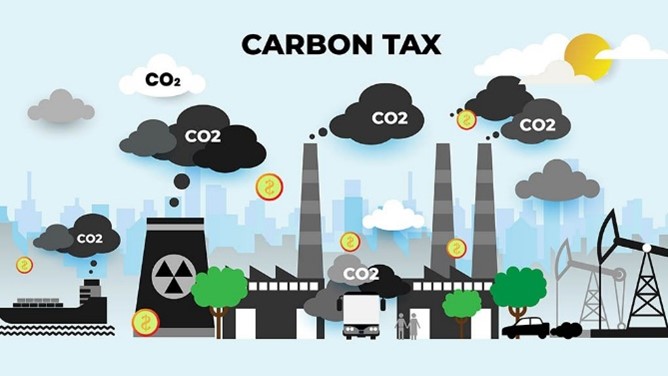The conditions imposed by these institutions on loans beneficial

The conditions imposed by these institutions on loans beneficial
by vivienne 12:22pm Jan 11, 2025

The conditions imposed by institutions like the International Monetary Fund (IMF) and the World Bank on loans, often referred to as conditionality, can be both beneficial and detrimental to recipient countries, depending on several factors such as the design of the conditions, the country’s specific context, and how the reforms are implemented. Below, I’ll explore both the benefits and criticisms of these conditions.

Benefits of Loan Conditions
Restoring Economic Stability
IMF: The IMF’s conditions often aim to restore fiscal discipline, stabilize exchange rates, reduce inflation, and manage public debt. While these measures can be painful in the short term (e.g., austerity, tax hikes, spending cuts), they can help countries regain economic stability, build investor confidence, and avoid default. This is crucial for countries facing balance of payments crises, where the economy is at risk of collapsing.
World Bank: The World Bank’s conditions typically support long-term development goals, such as infrastructure investment, poverty reduction, and governance improvements. By conditioning loans on reforms, the World Bank ensures that funds are used effectively to achieve sustainable growth and development, which helps prevent the waste of resources and fosters long-term stability.
Promoting Structural Reforms
IMF: Structural reforms are a key feature of IMF programs. These may include deregulating industries, liberalizing trade, reducing government intervention in markets, or improving the financial sector. These reforms are designed to increase economic efficiency, attract foreign investment, and promote competitiveness in the global economy. In many cases, these reforms help make economies more market-driven and resilient.
World Bank: The World Bank often imposes conditions aimed at improving governance, reducing corruption, and enhancing the efficiency of public services. These reforms can help make public spending more transparent and targeted at reducing poverty, improving education, and strengthening health systems.
Encouraging Good Governance
IMF and World Bank: Both institutions often emphasize improving governance as a condition for loans. This includes strengthening legal frameworks, building institutional capacity, and reducing corruption. Good governance is essential for creating an environment that supports economic growth, as it helps ensure that policies are effectively implemented and that public resources are used efficiently.
Debt Sustainability
IMF: The IMF's debt sustainability assessments ensure that countries don’t take on more debt than they can handle. This is particularly important for preventing a debt crisis that could harm the country's long-term stability.
-
World Bank: In some cases, the World Bank provides debt relief or restructuring to countries in need, which helps avoid a sovereign debt crisis and allows countries to allocate resources to essential development projects.

Detrimental Effects of Loan Conditions
Austerity and Social Unrest
IMF: One of the most commonly criticized aspects of IMF loan conditions is the emphasis on austerity measures, which often include cuts to public spending, reduction of subsidies, tax increases, and public sector layoffs. While these measures aim to reduce budget deficits, they can lead to social unrest, increased poverty, and inequality. This is particularly true when austerity targets essential social services such as health, education, and social protection, which disproportionately affect vulnerable populations.
World Bank: In some cases, the World Bank’s conditions may require countries to prioritize fiscal austerity over social spending, which can undermine efforts to address poverty and inequality, leading to social instability and poor health and education outcomes in the short term.
 Long-Term Economic Dislocation
Long-Term Economic DislocationIMF: While the IMF aims to stabilize economies in the short term, the structural reforms it advocates can sometimes lead to long-term dislocation. For example, the push for privatization and liberalization of markets can result in job losses in state-owned industries, reduced access to public services, and disruptions in social safety nets. If these reforms are implemented too quickly or without adequate planning, they can hurt the most vulnerable segments of society.
World Bank: Similarly, the World Bank’s emphasis on market-oriented reforms and infrastructure projects can sometimes lead to displacement of communities, environmental degradation, and the creation of unsustainable development patterns. If the economic benefits of such reforms are not broadly shared, inequality can increase, which undermines long-term stability.
Loss of Sovereignty and Policy Flexibility
IMF: Critics argue that IMF loan conditions can result in a loss of sovereignty for recipient countries. The conditions often require countries to implement specific economic policies that may not align with the country’s priorities or needs. This can reduce a government’s ability to make independent policy decisions, leading to resentment among citizens and political instability.
World Bank: The World Bank’s involvement in policy reform can also lead to tensions over the imposition of foreign policies. In some cases, the Bank’s prescriptions are seen as favoring global market interests over local development priorities, and this can limit the flexibility of governments to chart their own development paths.
Focus on Market-Oriented Reforms Over Social Goals
IMF: The IMF’s focus on market-friendly reforms can sometimes prioritize economic liberalization (such as deregulation and privatization) over social objectives like income redistribution and social protection. This can lead to increased inequality and social unrest, particularly if the benefits of these reforms are unevenly distributed.
World Bank: While the World Bank’s projects often aim to reduce poverty, there are instances where the focus on economic growth and infrastructure development can overlook the need for inclusive development. If the economic benefits of these projects do not reach the poorest segments of society, they can exacerbate inequality rather than alleviate it.
Environmental Concerns
World Bank: Some World Bank projects, especially those involving large-scale infrastructure (e.g., dams, roads, mining), have been criticized for causing environmental harm. In some cases, such projects can lead to deforestation, pollution, displacement of local communities, and long-term ecological damage, which can undermine the very economic stability they are meant to promote.
IMF: The IMF's focus on fiscal consolidation and market reforms sometimes overlooks environmental sustainability, especially when countries face the temptation to prioritize short-term economic gains over long-term environmental goals.
Contextual Factors: The specific economic context and the state of the country’s economy at the time of the loan are crucial. In some cases, the reforms may be necessary to restore stability and growth. In others, they may exacerbate existing social and economic problems.
Design and Implementation: If the conditions are well-designed, gradual, and focused on long-term development with adequate social safeguards, they can lead to positive outcomes. However, if they are too harsh or implemented too quickly, they can cause significant harm.
Inclusive and Sustainable Approaches: The IMF and World Bank are increasingly focused on making their policies more inclusive and sustainable, balancing economic reforms with social protections, environmental sustainability, and poverty reduction. When this balance is achieved, the conditions can be beneficial for the recipient country.

Balancing the Pros and Cons
The key question of whether the conditions imposed by the IMF and the World Bank are beneficial or detrimental depends on several factors:






